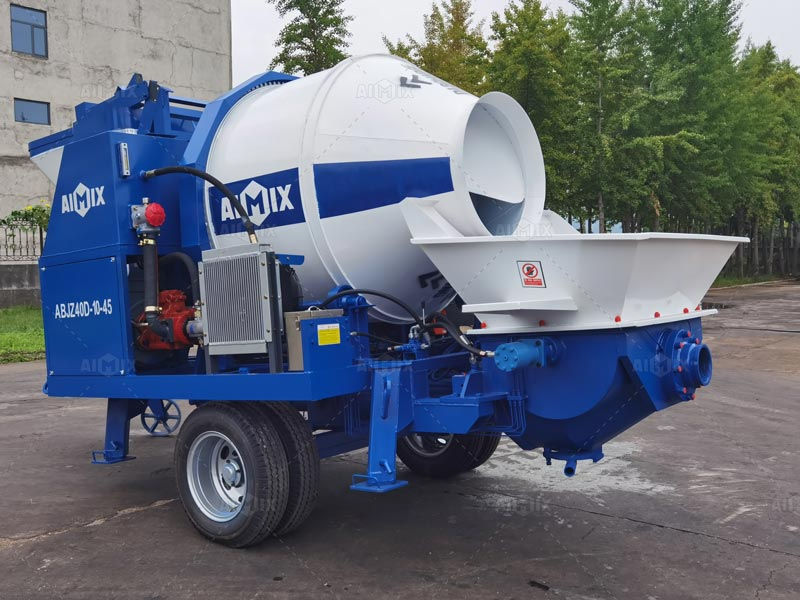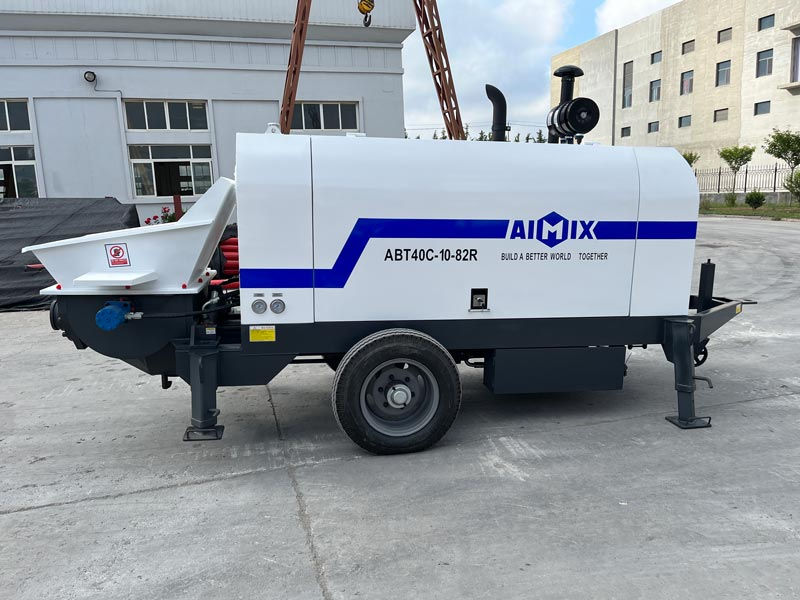Can Concrete Pump Equipment Handle All Types of Concrete Mixes?
- aimixglobal2024
- 2024年9月6日
- 讀畢需時 3 分鐘
Concrete pumps have become an essential tool in modern construction. They provide efficient, quick, and precise placement of concrete, reducing labor and time costs. But a common question arises: can concrete pump equipment handle all types of concrete mixes? This question is important for contractors who deal with various projects that require different types of concrete.
In this article, we will explore whether concrete pump equipments can handle all types of concrete mixes and how to optimize their use for the best results.

Understanding Different Types of Concrete Mixes
Concrete mixes vary based on their composition and purpose. Some common types of concrete mixes include standard, lightweight, high-strength, and self-compacting concrete. Each mix is designed for specific projects, with different requirements for strength, weight, and durability.
Concrete pumps need to move these mixes through their pipelines efficiently. The challenge lies in whether the pump can handle the mix's viscosity, aggregate size, and water-cement ratio. Different types of concrete mixes can behave differently when pumped, making it important to understand which mixes work best with certain pump equipment.
Can Concrete Pumps Handle Standard Concrete Mixes?
Standard concrete mixes are the most commonly used in construction. They typically have a balanced water-cement ratio and medium aggregate size. Concrete pumps are well-suited for handling standard mixes, as these mixes flow smoothly through the pump lines without much resistance.
For most residential and commercial projects, standard concrete mixes and pumps work together efficiently. The key is to ensure that the pump's pressure and hose diameter are appropriate for the mix. With the right settings, concrete pumps can handle standard mixes with ease.

Pumping Lightweight and High-Strength Concrete Mixes
Lightweight concrete mixes are often used in projects where reducing the structure's overall weight is essential. These mixes contain lighter aggregates like expanded clay or shale. Concrete pumps can handle lightweight mixes, but contractors need to monitor the flow carefully. The lower density of lightweight concrete can sometimes cause segregation, where the aggregates and cement separate during pumping.
On the other hand, high-strength concrete mixes have a low water-cement ratio and are used in projects requiring greater strength, like bridges and high-rise buildings. These mixes can be more challenging for pumps due to their thicker consistency. However, modern concrete pumps with higher pressure settings can still handle high-strength concrete efficiently. Proper preparation and monitoring during pumping are crucial to ensure the mix flows smoothly.
Challenges with Pumping Harsh Concrete Mixes
Harsh concrete mixes contain large aggregates, low water content, and a stiff consistency. These types of mixes are often used in specific industrial or heavy-duty applications. While harsh mixes are more challenging to pump, modern concrete pump equipment can still manage them with the right approach.
Pumping harsh mixes may require higher pressure, larger hose diameters, and continuous monitoring to prevent blockages. Ensuring that the mix has sufficient lubrication and flow additives can also help reduce the strain on the pump equipment.
Tips for Successful Concrete Pumping
To choose concrete pumps for sale that handle different types of mixes effectively, follow these tips:
Choose the Right Pump: Different pumps are designed for different mix types. Use high-pressure pumps for thick or high-strength concrete, and lower-pressure pumps for lightweight and standard mixes.
Monitor the Mix Consistency: Ensure the mix has the right water-cement ratio to prevent blockages or flow issues.
Maintain Your Equipment: Regular maintenance ensures that your pump operates smoothly with different types of mixes.
Adjust Pump Settings: Match the pump's pressure and flow rate to the specific type of concrete mix you are working with.
Conclusion
Concrete pump equipment can handle a wide variety of concrete mixes, from standard and lightweight mixes to high-strength and self-compacting concrete. However, different mixes may require adjustments in pump pressure, hose size, and overall equipment settings to ensure smooth flow and prevent issues.
Understanding the capabilities of your pump equipment will help you get the best results, no matter the type of concrete mix you're working with.




留言